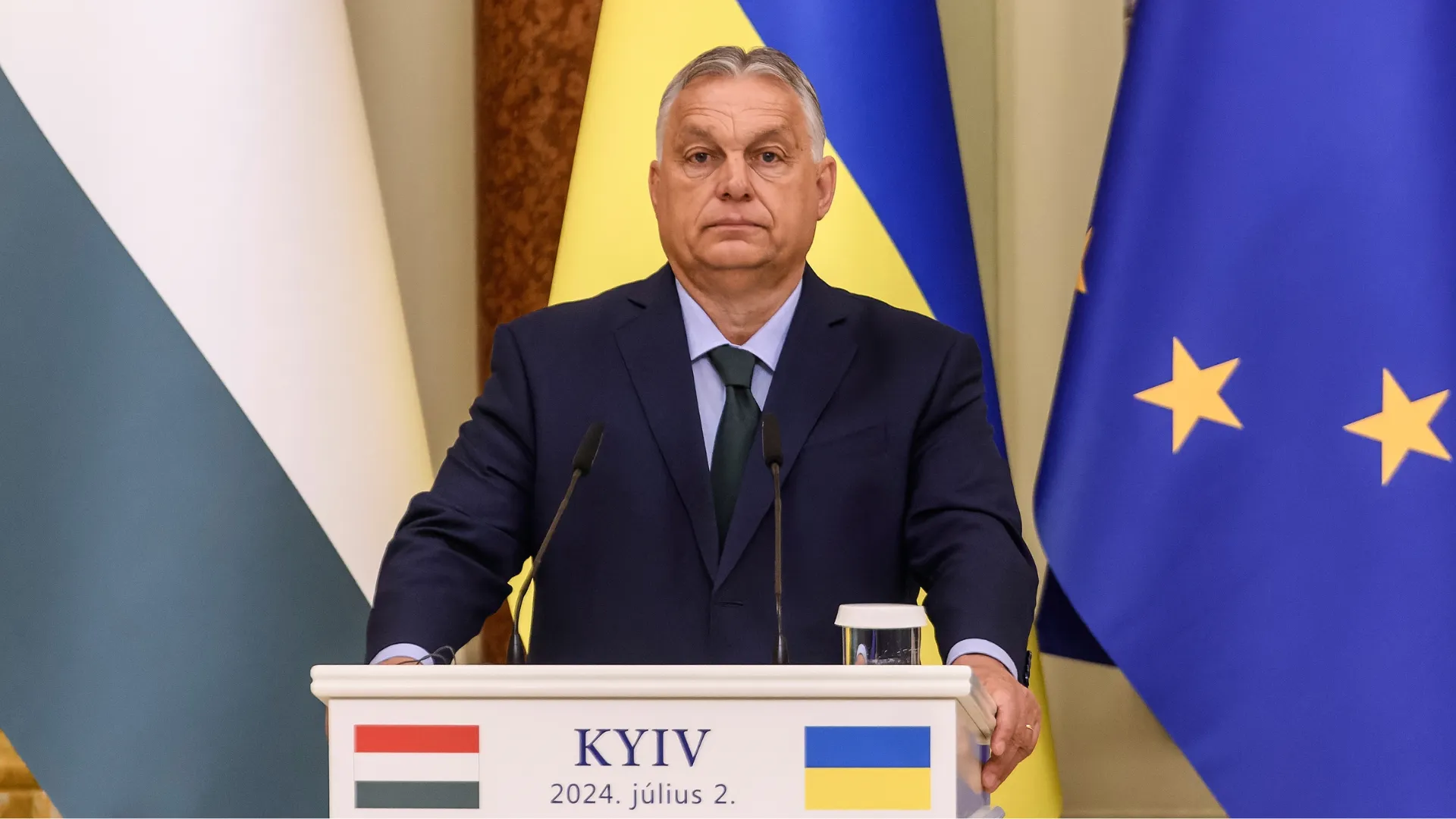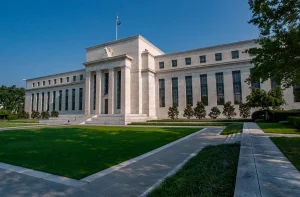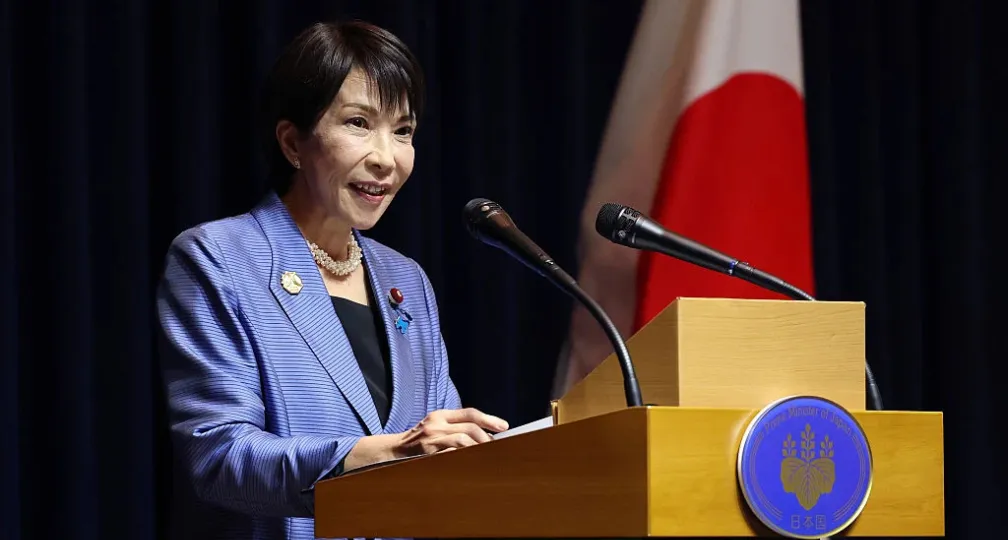Nippon Steel: The Decision Is Biden’s, but the Problem is Systemic

Nippon Steel’s attempted acquisition of U.S. Steel finally reached its conclusion after a year of turmoil, with U.S. President Joe Biden officially blocking the sale on January 2. The decision isn’t a surprise, partly because announcements that he would block the deal had already been scheduled twice in September and December before CFIUS reached its conclusion. At the same time, it’s far from a one-off decision in an isolated case and represents the latest step of using national security concerns to seal off the U.S. economy – with uncertain implications for the future of foreign investment into the United States.
If nothing else, the case of Nippon Steel’s attempted acquisition of U.S. Steel introduced observers to how the United States weighs national security concerns in its international economic policy. The White House announcement said there was “credible evidence” that Nippon Steel, through its acquisition of U.S. Steel, “might take action that threatens to impair the national security of the United States”. The announcement didn’t offer specifics, but drew on subsection 721(f) of the Defense Production Act of 1950 which sets forth conditions under which the White House may consider relevant to national security. These conditions include whether domestic production is needed for national defense requirements, the risk of potential sale of military goods or technology to a country that supports terrorism or producing weapons of mass destruction, whether it impacts U.S. technological leadership in areas affecting national security, and the agreement’s impact on U.S. critical infrastructure.
Inferring from what’s been argued the past year suggests that the threats to national security seem to be focused on whether Nippon Steel would support U.S. trade enforcement actions against low-cost steel exports and questions over which steel plants may remain open and how closures might affect union jobs. Importantly, the issue is not exactly with Nippon Steel itself – White House National Security Council spokesperson John Kirby even said that the decision “wasn’t about Japan” – but with the bigger context of overproduction and excess steel capacity worldwide and what that might mean for the future of domestic U.S. steel production. Concerns over enforcement seem to have chilled enough of the members of the Committee on Foreign Investment in the United States (CFIUS) to lead the committee to a deadlocked decision.
While it’s not clear what exactly drove these concerns, part of the reason may be Nippon Steel’s investments in China. Nippon Steel dissolved its joint venture with China’s Baoshan Iron & Steel in August 2024, reducing the company’s production capacity in China by 70 percent but left around 1 million metric tons due to its joint business with Wuhan Iron and Steel, another unit of the China Baowu Steel Group. Enforcement has been a key pillar of U.S. trade policy in recent decades, and any concern that Nippon Steel would not vigorously pursue cases against steel exports from China, itself cited as a national security risk by the U.S. Department of Commerce in a 2018 report, may have been enough to create concerns among the members of CFIUS.
Unions, an ever-important stakeholder for the Democratic Party, also had concerns about what the deal might mean for the future of unionized steel mills and the possibility of steel imports. If the deal had succeeded, there could have eventually been steel mill closures, particularly blast furnaces. Nippon Steel had already closed some blast furnace operations in Japan in favor of lower-cost and relatively cleaner electric arc furnaces (EAF). Meanwhile U.S. Steel had idled its blast furnace in Illinois and acquired three EAFs in Arkansas. This was particularly concerning to the United Steel Workers (USW) union because the jobs in blast furnace mills are unionized while the EAF jobs are non-union, so any decision to transfer operations from blast furnaces to EAFs would effectively cost union jobs. Indeed, Nippon Steel’s initial offer to U.S. Steel was the purchase of its EAFs while U.S. Steel insisted on the purchase of all its mills.
Additionally, if the blast furnaces were shuttered, the USW suggested that the production gap would be made up with steel imports, an outcome they argued would be less likely with a domestic firm. Nippon Steel hoped to mitigate the concerns about cutting U.S. steel production by offering the U.S. government a veto over production levels, but the USW reacted skeptically because it failed to commit to sustaining employment, long-run production, or enhancing domestic capacity. This all becomes a national security issue in the sense that if mills are closed and any production gap is made up with imports, the resulting influx would undercut U.S. producers leading to more mill closures and diminished U.S. production capacity which would create a national security threat.
Yet these arguments strain the definition of national security. The steel produced by the firms in question is mostly for the automotive industry rather than the U.S. military (who, now maybe awkwardly, already relies on foreign steel for shipbuilding). Content from Japan is already throughout the critical infrastructure of the United States: Leo Lewis of the Financial Times cites an investor who points out that “Sony remains the sole supplier of camera sensors to Apple; Tesla builds nothing without Japanese robots; Japanese suppliers provide nearly 40 per cent of Boeing’s most advanced parts”. Employees of U.S. Steel supported the acquisition on the basis that their company needed the infusion of investment to keep their facilities running, believing that mills would close without it.
Ultimately, Biden’s decision shows how much these processes are never detached from politics. It feels like the logic to the decision has been backfilled to justify a conclusion that Biden already wanted. He’s considered himself to be a particularly pro-union president who would always give union concerns full consideration and has been branded as “Scranton Joe”, referring to the working-class Pennsylvania town where he grew up. Biden could have offered a conditional block to the acquisition, giving Nippon Steel the opportunity to address these concerns more concretely before allowing the sale to go forward, as National Security Advisor Jake Sullivan suggested. Instead, it seems that Biden made the decision on his own and over the objections of many of his advisors. U.S. Trade Representative Katherine Tai has been reported to be similarly deferential to union concerns, though the personal connections aren’t as apparent. Among the interagency members of CFIUS, the Defense Department, State Department, and Treasury Department agreed that the deal posed no security risks, while the Office of the U.S. Trade Representative and Department of Energy stood in opposition and their position seemed to carry some weight in the Committee’s eventual deadlock.
At the same time, there’s more to this than personal predilections because it’s a decision that’s consistent across presidential administrations and political parties. Using national security to justify trade barriers is especially endemic: Benn Steil and Elisabeth Harding of the Council on Foreign Relations tracked the use of national security exemptions at the World Trade Organization in the Trump and Biden administrations and found that exemptions are being used to “justify trade restrictions on innocuous items such as cocoa beans, alcoholic beverages, animal feed, lighting products, and doorframes”. Nippon Steel did everything it could in the review process but change its nationality – it paid a premium for the acquisition, promised that key corporate personnel would be U.S. citizens, made significant divestments from its China-based operations, promised to move its headquarters to Pittsburgh, Pennsylvania, the current base of U.S. Steel, guaranteed production capacity at their mills, offered the U.S. government a veto to any cuts in steel production, promise to maintain the union’s contract, to report to CFIUS on their compliance, and was still judged to present a national security risk. It’s hard to know what else Nippon Steel could have done, because the definition of national security that has been created is wide enough to forget about any limits.
It’s one thing to stretch the definition of national security for the case at the WTO, but it’s another when the issue is foreign investment. Both Trump and Biden want to attract foreign investment, and FDI is a way of allowing capital to flow despite protectionist barriers. FDI has generally flowed into the United States freely as long as the investment doesn’t pose a national security risk – the issue that CFIUS was established to review. Japan is the largest source of foreign direct investment to the United States and a treaty ally, and if their investment is blocked for national security concerns, others can justifiably start to question the risks to their own potential investments. By expanding the definition of national security to justify blocking Nippon Steel’s acquisition, it’s hard to know the limits of “national security” and firms considering investment in the United States will need to think more carefully about potential national security implications in ways they have not needed to before.
Japan’s government may also begin to ask questions about what’s possible in its economic relationship with the United States. Japan has grudgingly, but willingly complied with the U.S. turn towards economic security, but with each new request from the United States came a growing sense that Japan’s efforts weren’t being reciprocated with U.S. efforts to accommodate Japan’s priorities. There will be a frustration in Tokyo that they feel as if Japan is doing everything asked of it but left with nothing but more demands – and now one if its largest firms has now been called a security threat.
It’s not as if the United States scuttled its alliance with Japan – shortly after Biden’s announcement on Nippon Steel, the U.S. government announced the sale of advanced medium-range air-to-air missiles and related equipment to Japan for roughly $3.64 billion. The issue is that the U.S. relationship with the region is becoming imbalanced towards military concerns with their narrow applications and away from economic concerns which most U.S. partners in the region are more interested in. It makes the U.S. seem more like the region’s hired muscle rather than an actual partner with the interest to shape rules and behavior. The United States is using trade law to simply do whatever it wants which, even allowing for the endemic hypocrisy in countries’ trade practices, is the exact opposite of a rules-based system the Biden administration said it supported.
It’s fair to remember that the acquisition concerned a particularly sensitive firm in a particularly sensitive industry in a particularly sensitive state in a particularly sensitive election year. That’s not the same as a national security threat. Besides, it’s hard to justify political concerns when the election is over, and the transition of power is in a few weeks. The story of Nippon Steel revealed all the weaknesses in U.S. international economic policy – fitting an ally-centered foreign policy approach against a “worker-centric” economic strategy that prioritized American ownership, relegating economic strategy to political strategies, foreign buyers overextending themselves to gain access, stretching “national security” concerns to justify economic policy, and generally undermining the rules-based international order the Biden administration has insisted is its priority.
The White House and supporters of the decision might insist that the decision is only a one-off and doesn’t speak to anything beyond this particular case. It isn’t, and builds on patterns of behavior stretching across different administrations and with unclear implications for what happens next. To paraphrase a famous line, Biden’s Nippon Steel decision exists in context of current trade policy and what came before.
(Photo Credits: Shutterstock)


Visiting Research Fellow
Paul Nadeau is an adjunct assistant professor at Temple University's Japan campus, co-founder & editor of Tokyo Review, and an adjunct fellow with the Scholl Chair in International Business at the Center for Strategic and International Studies (CSIS). He was previously a private secretary with the Japanese Diet and as a member of the foreign affairs and trade staff of Senator Olympia Snowe. He holds a B.A. from the George Washington University, an M.A. in law and diplomacy from the Fletcher School at Tufts University, and a PhD from the University of Tokyo's Graduate School of Public Policy. His research focuses on the intersection of domestic and international politics, with specific focuses on political partisanship and international trade policy. His commentary has appeared on BBC News, New York Times, Nikkei Asian Review, Japan Times, and more.
View Profile-
 Fed-Treasury Coordination as Economic Security Policy2026.02.13
Fed-Treasury Coordination as Economic Security Policy2026.02.13 -
 Challenges for Japan During the U.S.-China ‘Truce’2026.02.12
Challenges for Japan During the U.S.-China ‘Truce’2026.02.12 -
 India and EU Sign Mother of All Deals2026.02.09
India and EU Sign Mother of All Deals2026.02.09 -
 Orbán in the Public Eye: Anti-Ukraine Argument for Delegitimising Brussels2026.02.04
Orbán in the Public Eye: Anti-Ukraine Argument for Delegitimising Brussels2026.02.04 -
 Trump, Takaichi and Japan’s Strategic Crossroads2026.02.03
Trump, Takaichi and Japan’s Strategic Crossroads2026.02.03
 Oil, Debt, and Dollars: The Geoeconomics of Venezuela2026.01.07
Oil, Debt, and Dollars: The Geoeconomics of Venezuela2026.01.07 Orbán in the Public Eye: Anti-Ukraine Argument for Delegitimising Brussels2026.02.04
Orbán in the Public Eye: Anti-Ukraine Argument for Delegitimising Brussels2026.02.04 When Is a Tariff Threat Not a Tariff Threat?2026.01.29
When Is a Tariff Threat Not a Tariff Threat?2026.01.29 A Looming Crisis in U.S. Science and Technology: The Case of NASA’s Science Budget2025.10.08
A Looming Crisis in U.S. Science and Technology: The Case of NASA’s Science Budget2025.10.08 Fed-Treasury Coordination as Economic Security Policy2026.02.13
Fed-Treasury Coordination as Economic Security Policy2026.02.13













